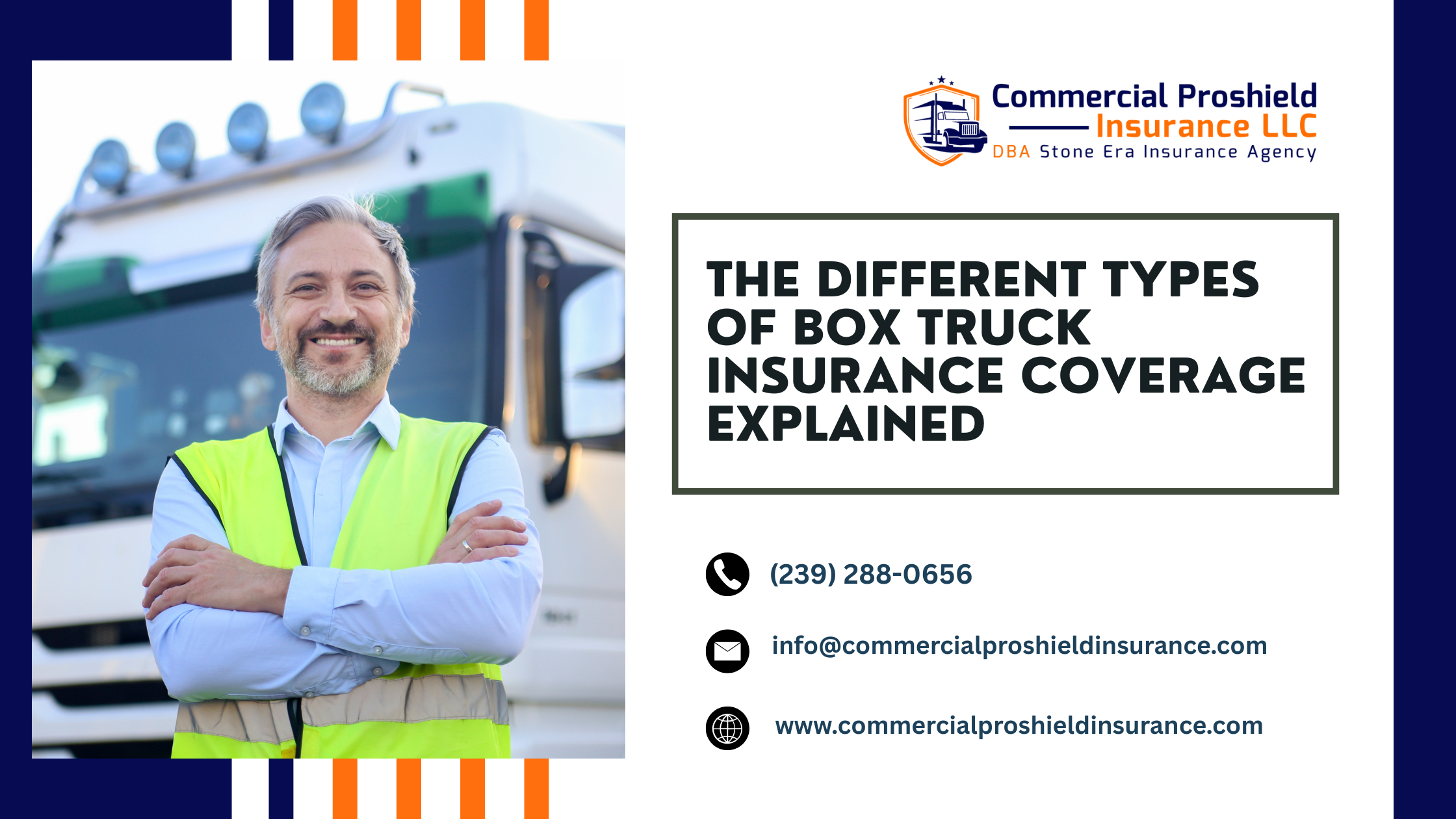Whether you're hauling goods locally or across state lines, operating a box truck comes with real risks. From accidents on the road to cargo damage or unexpected breakdowns, you need proper protection to keep your business running smoothly. That’s where box truck insurance comes in.
At Commercial Pro Shield Insurance, we help owner-operators and fleets understand what coverages they need — and why they matter. Let’s break down the different types of insurance coverage available for box trucks.
1. Primary Liability Insurance
This is the coverage required by law if your box truck is driven on public roads. It covers bodily injury and property damage that you may cause to others in an accident. Even if you’re at fault, primary liability steps in to protect others — and protect your business from devastating lawsuits.
2. Physical Damage Insurance
Accidents happen — and not all of them involve other drivers. Physical damage coverage protects your own truck from damage due to collisions, theft, vandalism, or weather-related events.
It includes:
Collision coverage – Damage from hitting another vehicle or object.
Comprehensive coverage – Non-collision-related damage like fire, hail, or theft.
3. Motor Truck Cargo Insurance
This covers the cargo you’re hauling in your box truck. If goods are lost or damaged due to fire, theft, or an accident, motor truck cargo insurance helps cover the cost of those items — which could save your company from major financial loss.
4. General Liability Insurance
Often confused with primary liability, this coverage protects against claims of non-driving-related accidents, such as someone slipping on your loading dock or damage caused while loading or unloading cargo. It’s especially important for companies that operate out of a terminal or warehouse.
5. Non-Trucking Liability (Bobtail Insurance)
If you're an owner-operator under lease, you might drive your box truck when you're not under dispatch. In these situations, non-trucking liability (often called bobtail insurance) covers liability when your truck is used for personal or non-business purposes.
6. Uninsured/Underinsured Motorist Coverage
Not every driver on the road carries enough insurance. This coverage protects you if you’re hit by someone with no insurance or inadequate coverage. It can help pay for medical bills or property damage that their policy doesn't cover.
7. Workers’ Compensation (If You Have Employees)
If you have drivers or warehouse staff, workers’ comp is essential. It helps cover medical expenses and lost wages if an employee is injured on the job.
8. Trailer Interchange Coverage
If you sometimes haul trailers you don’t own under a trailer interchange agreement, this coverage protects against damage to those trailers — even if you're not at fault.
Final Thoughts
Choosing the right box truck insurance coverage can feel overwhelming, but it doesn’t have to be. At Commercial Pro Shield Insurance, we help trucking professionals build tailored insurance plans that actually protect what matters — their truck, cargo, employees, and business reputation.
Whether you're a new owner-operator or managing a growing fleet, we’ll help you understand your options and find competitive rates that fit your budget.
Ready to get a free quote or need help reviewing your current policy?
Contact Commercial Pro Shield Insurance today — your trusted partner in box truck coverage.

